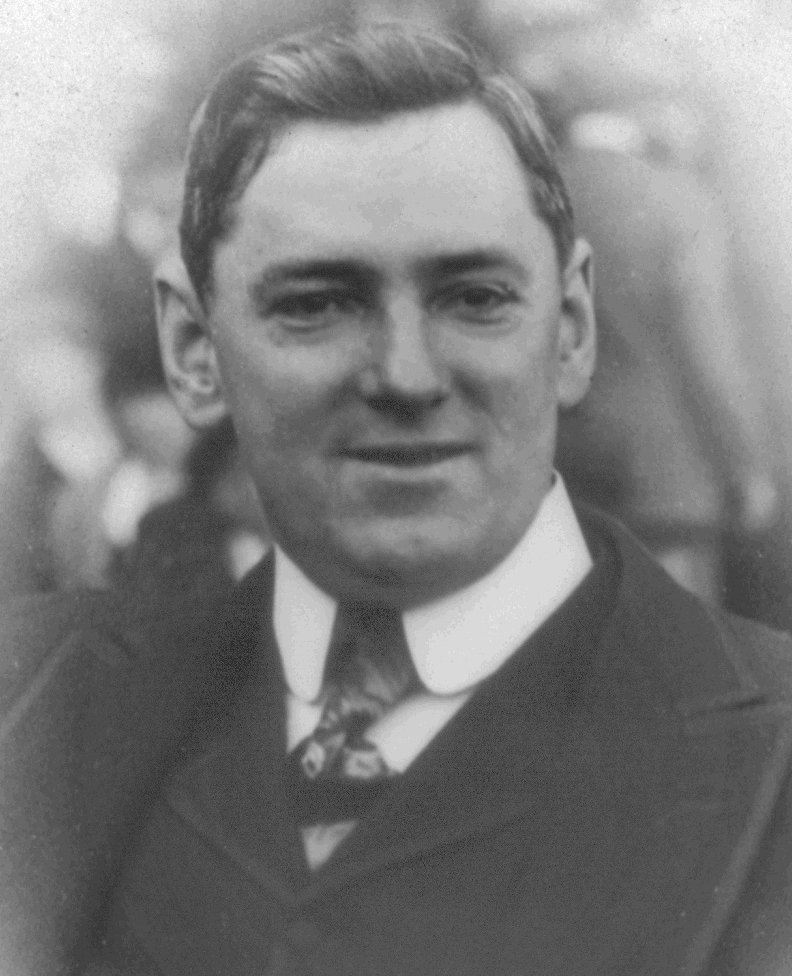
At least it’s ‘systematic’
The corrupt and highly entertaining James Michael Curley (1874-1958), who in his terms as Boston’s mayor skillfully appealed to the resentments of city’s Irish-American residents about the “Boston Brahmin” WASP elite. He was the basis of Edwin’s O’Connor’s great novel The Last Hurrah.
Editor’s note: My paternal grandfather first met Curley in 1930, when they had a conversation of about 10 minutes. He next encountered him in 1949. Curley asked after my grandmother and her two children by name and other related family stuff. Like most great pols, he had a capacious memory for personal information about current and potential voters.
“Politics, as a practice, whatever its professions, had always been the systematic organization of hatreds, and Massachusetts politics had been as harsh as the climate. The chief charm of New England was harshness of contrasts and extremes of sensibility —a cold that froze the blood, and a heat that boiled it —so that the. pleasure of hating—oneself if no better victim offered —was not its rarest amusement; but the charm was a true and natural child of the soil, not a cultivated weed of the ancients. The violence of the contrast was real and made the strongest motive of education. The double exterior nature gave life its relative values. Winter and summer, cold and heat, town and country, force and freedom, marked two modes of life and thought, balanced like lobes of the brain. Town was winter confinement, school, rule, discipline; straight, gloomy streets, piled with six feet of snow in the middle; frosts that made the snow sing under wheels or runners; thaws when the streets became dangerous to cross; society of uncles, aunts and cousins who expected children to behave themselves, and who were not always gratified; above all else, winter represented the desire to escape and go free. Town was restraint, law, unity. Country, only seven miles away, was liberty, diversity, outlawry, the endless delight of mere sense impressions given by nature for nothing, and breathed by boys without knowing it.’’
Henry Adams (1838-1918), in The Education of Henry Adams (1918). He was a member of the famous Boston] area-based Adams political family that started with President John Adams.
Misreading 'The Last Hurrah'?
James Michael Curley in 1922, during his second term as mayor.
"The misreading of The Last Hurrah (Edwin O'Connor's novel loosely based on the career of the late Boston Mayor James Michael Curley (1874-1958)-- "The Rascal King''} came with certain costs. The book's acceptance as an authentic account of Boston's political culture helped steer attention away from critical aspects of the city's history....{T}he eagerness with which so many Americans embraced The Last Hurrah as a celebration of machine politics helped obscure the range of civic activism that circulated in ethnic America. Working-class immigrants and the politicians who represented them developed their own reform visions, often in opposition to party bosses...We risk dehumanizing ethnics when we assume that their politics amounted to little more than an exchange of votes for services, however personal the help may have been.''
-- James J. Connolly, in his article "The Last Hurrah and Pluralist Vision of American Politics,'' in the book Boston's Histories: Essays in Honor of {historian} Thomas H. O'Connor.
Editor's Note: Curley, however corrupt, had superb political talents, including a capacious memory. My paternal grandfather, who helped run a shoe company in Brockton, met and chatted with Curley at an event in the late '20s. He next ran into the pol in 1952. Curley greeted him by name (Henry) and asked him how Margaret, my grandmother, was.
-- Robert Whitcomb
'I'm a tribal chieftain as well'
James Michael Curley in 1922.
“You see,’’ he said, my position is slightly complicated because I’m not just an elected official of the city; I’m a tribal chieftain as well. It’s a necessary kind of dual officeholding, you might say; without the second, I wouldn’t be the first.’’
“The tribe,’’ said Adam, being the Irish?’’
“Exactly.’’
Conversation between fictional Mayor Frank Skeffington, based on the corrupt and charming Boston Mayor James Michael Curley, and his nephew in Edwin O’Connor’s novel The Last Hurrah, which was made into a movie with Spencer Tracy starring as Skeffington.
Mr. Curley was mayor in 1914-1918, 1922–1926, 1930–1934 and 1946–1950, and governor of Massachusetts in 1935-1937.
William E. Colleran: The ups and downs of another felonious mayor
Don Pesci: Cianci, Rowland, et al., and the politics of salvation
Don Pesci is a writer who lives in Vernon.



